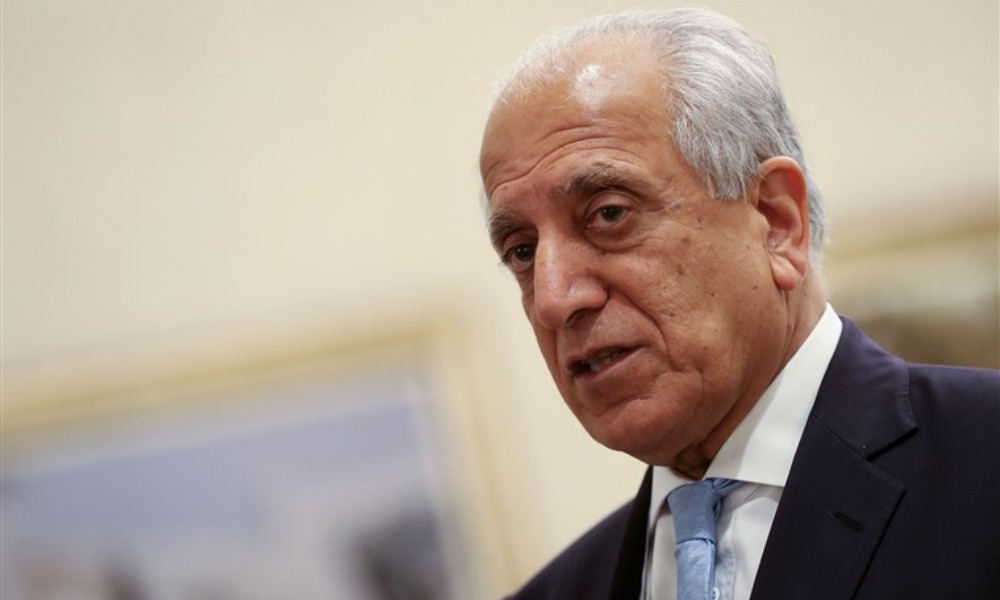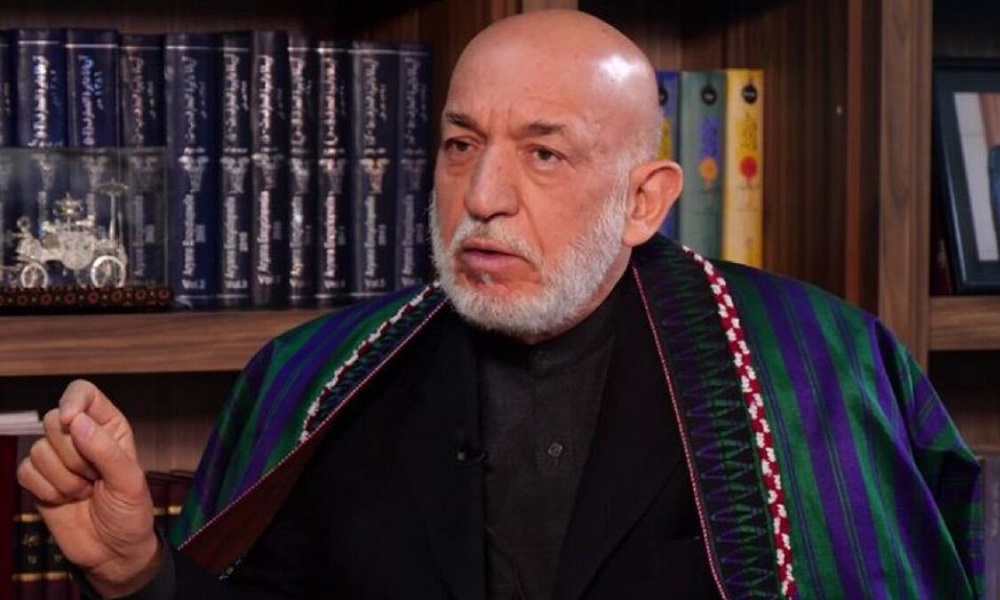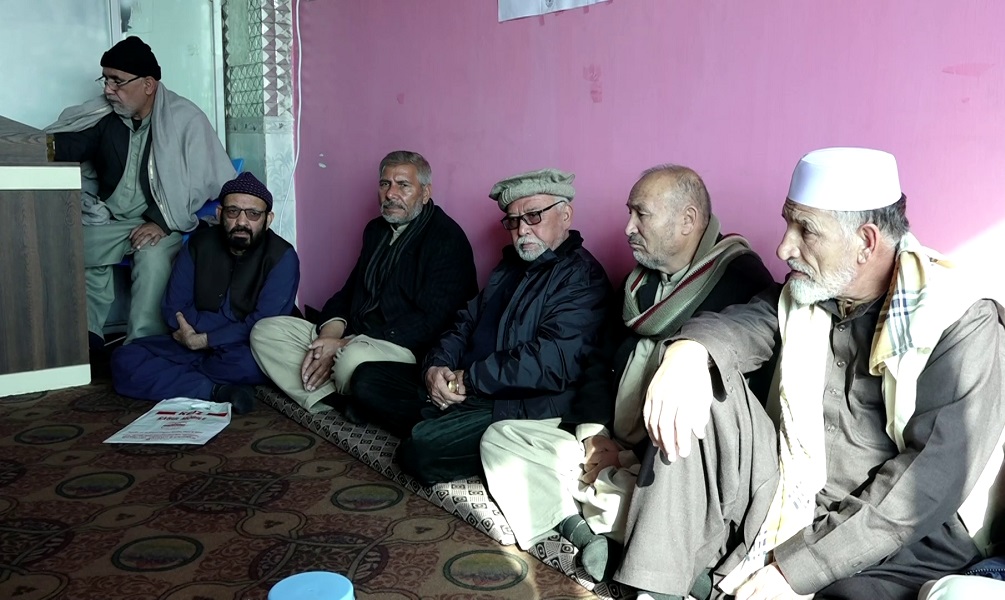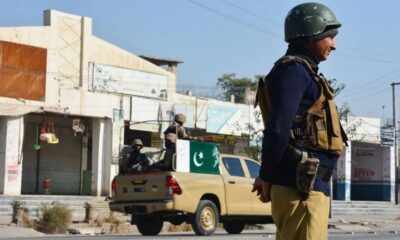Latest News
Khalilzad urges diplomacy to stave off ‘economic and state collapse’

Former special envoy for Afghanistan Zalmay Khalilzad has warned the situation in Afghanistan is so bad that if the economy collapses, the state will collapse.
In an interview with TRT World, broadcast this week, Khalilzad said should this happen, the Afghan people would face huge suffering and “millions might leave”.
Speaking to TRT World, on the sidelines of last week’s Middle East Peace and Security Forum (MEPS) in Duhok, in the Kurdistan Region of Iraq,
Khalilzad said that in his opinion the current situation in Afghanistan might not be completely “desirable” but it’s also not a return to the situation in the 1990’s under the previous Islamic Emirate of Afghanistan (IEA) government.
He also said that following the takeover by the IEA, “things could have been a lot worse” and that there could have been gunfights in the streets and mass killings.
He said while there have been “specific instances that are negative, it isn’t a return to the 90s,” adding that the IEA does however have a long way to go to meet standards to “be accepted as a member of the international community”.
On a question about reported factionalism within the IEA, Khalilzad said that during the Doha talks, in the lead up to the signing of the agreement in February last year, the US had been concerned about this issue.
However, the US “tested them” and came to the conclusion that the talks delegation did in fact represent the core IEA, he said. He also pointed out that while there is factionalism within the IEA, the US had to deal with this same issue during the former Ashraf Ghani government.
“Factionalism is a part of life; it's a reality but when you negotiate with the Talibs (IEA) you negotiate it in writing; it's in detail; they're a very deliberative organization and they discuss things among themselves
for a long time before they finalize an agreement.”
Khalilzad said moving forward a road map needs to be worked out as both the international community and the IEA have concerns.
He said the IEA wants political normalcy, they want frozen assets released, names removed from the blacklist and help with development projects.
“We need to put all those things on the table and get a road map agreed
to that and if they take this step the international community will take that step.”
“I think the situation is so bad that if the economy collapses the state collapses; there will be such huge suffering on the part of the Afghan people; millions might have to leave; there could be more ungoverned spaces; back to conflict.
“None of that is in the interest of Afghanistan or the international community,” he said.
Khalilzad stated that the US and the international community cannot turn their backs on Afghanistan and that now is the time for diplomacy to shape the way forward so both sides can reach an agreement in order to remove sanctions.
He said without such a plan, it would not be in the US’ interest to have the state of Afghanistan collapse.
“Finances, monies have to be made available so that the state doesn't collapse because the alternative … is not in our interest in my view and it doesn't serve our values. But our job is not done there yet; we need to keep working it rather than turning our back because we're angry that the Talibs (IEA) came to power.”
He said it was in the US’ interest to help shape, influence, and engage so as to help get Afghanistan on a better trajectory.
Khalilzad also pointed out that before the US troops’ withdrawal and the IEA take over, Afghanistan was “not in a good shape” - having suffered over 18 years of war.
He said however that it would be unfair to say the IEA has not changed, noting that the new government wants to be accepted by the international community and wants assistance in rebuilding the country.
On the issue of the Islamic State’s Afghanistan affiliate (ISIS-K/Daesh), which has conducted a number of deadly attacks in Kabul in recent months, Khalizad said the IEA has the “willingness” to tackle the militant group. He said the question is whether the IEA has the capability to eradicate the group.
“There is no question or doubt that they are fighting Daesh,” he said.
Latest News
G7 envoys urge national dialogue for lasting stability in Afghanistan

Special Representatives of the Group of Seven (G7), including the European Union, have emphasized the importance of a national dialogue for achieving long-term stability in Afghanistan.
Following a meeting on Afghanistan in Geneva, Switzerland, G7 special envoys issued a joint statement calling for the restoration of women's rights and urging the Islamic Emirate to fight terrorism.
The statement reads: "Achieving sustainable peace and stability requires credible governance that represents all segments of Afghan society."
The representatives also expressed concern over the IEA’s decision to ban girls from attending medical institutes, warning that it will have devastating consequences for the citizens, particularly mothers and their infants.
The statement described this ban as unacceptable and called on the Afghan authorities to lift it immediately.
Earlier, countries and international organizations had called for the removal of restrictions on the education and employment of women and girls, emphasizing the need for a national dialogue.
In response to these concerns, IEA has repeatedly stated that it will not allow interference in the internal affairs of the country.
The G7 special envoys also expressed their concern about the recent terrorist attacks in Kabul and the surrounding region, warning that terrorism remains a serious threat to Afghanistan's security. They confirmed the actions of the IEA against Daesh but stressed the need for more decisive measures.
Latest News
Afghanistan’s bright future lies in educating girls: Karzai

Hamid Karzai, the former president of Afghanistan, says the demand of Afghan girls for the reopening of schools and universities is their fundamental right and adds that Afghanistan cannot have a bright future without ensuring access to education for girls.
In a statement on his X (formerly Twitter) account, Karzai said: "The demand and voice of our country’s girls for education and knowledge is a rightful one and crucial for a prosperous Afghanistan."
He further emphasized, "Empowering the youth—both girls and boys—is the only way to achieve self-reliance, break the cycle of poverty, and drive the development and prosperity of society."
Karzai underscored that education is vital for Afghanistan’s growth and development, expressing hope that the doors of schools and universities for girls will be reopened as soon as possible.
Latest News
IEA to set up special courts to address pensions

Mawlawi Hebatullah Akhundzada, the supreme leader of the Islamic Emirate of Afghanistan (IEA), has issued a decree to establish special courts to address pensions, Bakhtar news agency reported on Saturday.
According to the decree, the courts must confirm and process pensions in accordance with Sharia and law.
Pensioners have repeatedly voiced concern over delay in payment, saying that their financial challenges are growing.
Earlier this year, IEA's supreme leader banned money being deducted from salaries of government employees for pensions.
He also requested information on the tenure of employees and the total amount deducted from salaries for pensions.
-

 Sport5 days ago
Sport5 days agoLanka T10: All three matches abandoned due to rain
-

 Latest News5 days ago
Latest News5 days agoIndia hoping to import coal and marble from Afghanistan
-

 Sport4 days ago
Sport4 days agoZimbabwe’s opening ODI against Afghanistan abandoned
-

 Latest News5 days ago
Latest News5 days agoFuel prices rise in Herat as winter approaches
-

 Latest News5 days ago
Latest News5 days agoJapan announces $27.5 million aid package to Afghanistan
-

 Latest News3 days ago
Latest News3 days agoTwo horror accidents on Kabul-Kandahar highway leave 52 dead
-

 Latest News1 day ago
Latest News1 day agoAfghan men must stand with women to support viable future of country: US envoy
-

 World3 days ago
World3 days agoNorth Korean troops suffer 100 deaths, struggling in drone warfare, South Korea says
























